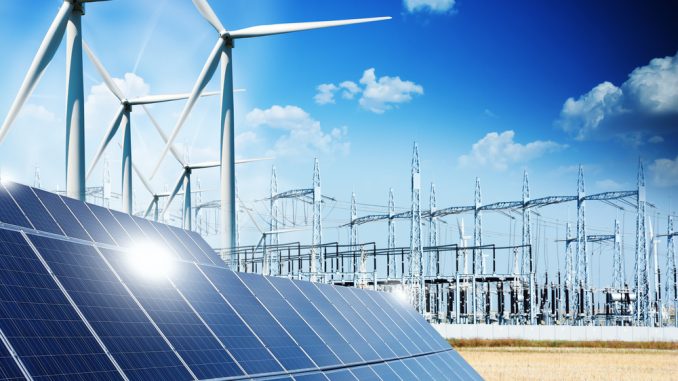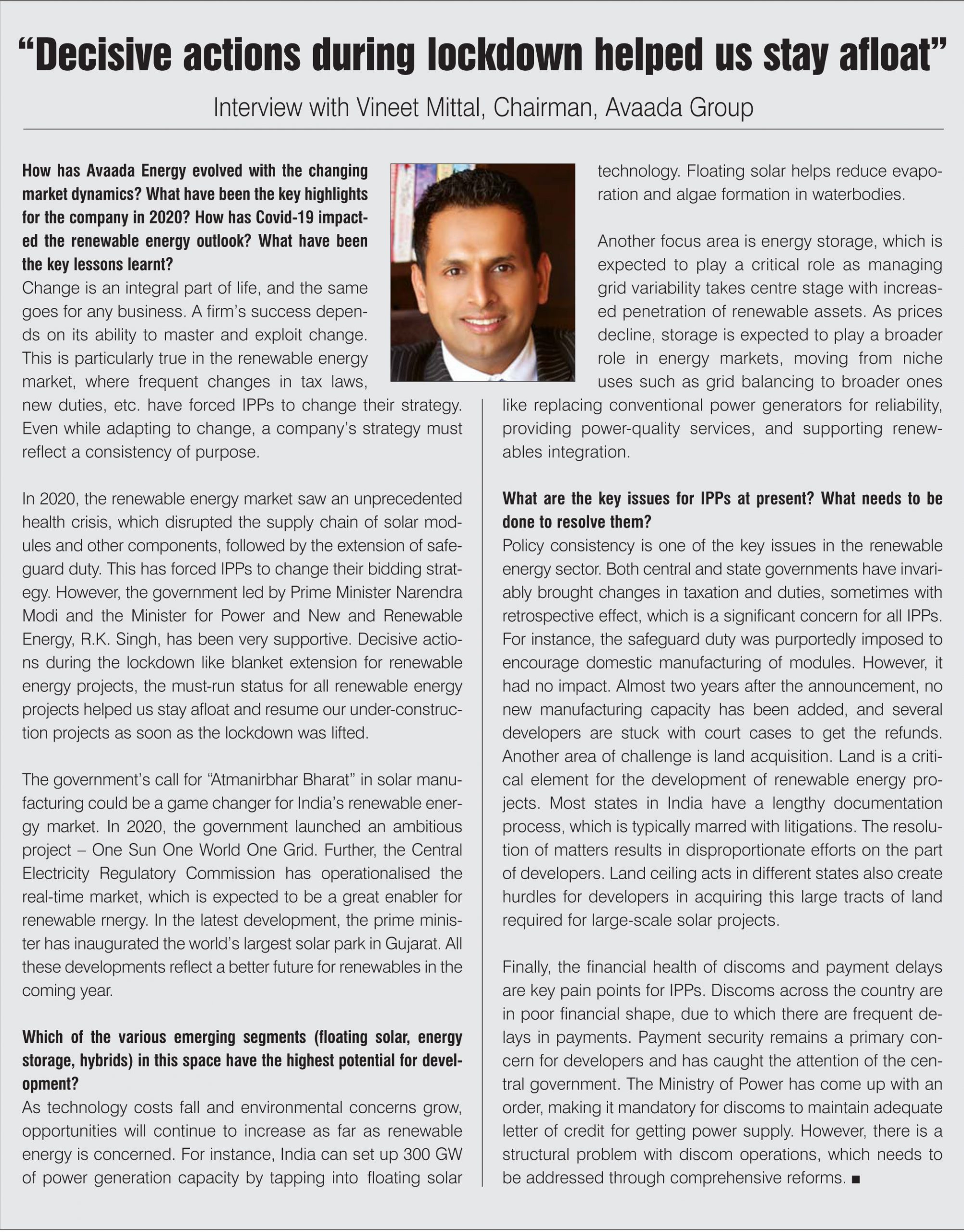
Avaada Energy was set up in 2017, with its co-founders using a part of the proceeds from the sale of their renewable energy portfolio in Welspun Renewable Energy to Tata Power Renewable Energy Limited. The Tata Power-Welspun deal of 2016 set new valuation benchmarks in the renewable energy industry, with 1,140 MW of assets sold for about Rs 92.5 billion. Further, Welspun’s engineering, procurement and construction business was demerged and transferred to a subsidiary of Avaada Energy.
Since its inception, Avaada Energy has grown rapidly with almost 1 GW of solar power projects under operation. It also has an impressive pipeline of approximately 3 GW, scheduled to be commissioned in the next couple of years.
Recent deals and developments
Avaada Energy has had a strong bidding record. It emerged as a winner in many recent bids. In June 2020, the company received a letter of award (LoA) from Maharashtra State Electricity Distribution Company Limited (MSEDCL) to develop a 350 MW solar project in Maharashtra and supply power to MSEDCL under a PPA. The project was allocated to the company in early 2019, as part of an auction for developing 1,000 MW of grid-connected solar power projects in Maharashtra. Avaada Energy emerged as a winner after quoting a tariff of at Rs 2.75 per kWh. The project is expected to be commissioned by January 2022.
Similarly, in May 2020, the Haryana Power Purchase Center (HPPC) received approval from the Haryana Electricity Regulatory Commission (HERC) to procure 240 MW of solar power from Avaada Energy at a tariff of Rs 2.73 per kWh. The capacity was won as part of a 300 MW HPPC tender floated in 2019.
Further, in April 2020, the company was awarded 320 MW of capacity under NHPC’s auction for 2 GW of ISTS-connected solar projects. The company had quoted a tariff of Rs 2.56 per kWh for 600 MW of solar capacity. In addition, in October 2019, Avaada Energy emerged as a winner in the Solar Energy Corporation of India’s 1.2 GW solar auction by quoting a tariff of Rs 2.71 per kWh for 300 MW of capacity. Apart from this, the company’s 300 MW solar project in Surendranagar, Gujarat, is at the final stage of commissioning.
Avaada Energy has also attracted financing from large instutional investors in order to fund its growth plans. During the year, the company received funding commitment of $10 million from Deutsche Investitions-und Entwicklungsgesellschaft, a German development financial institution, for the development of 4.3 GW of renewable capacity by 2022. The funds will be used for the construction, operation and maintenance of selected projects in India. According to DEG, the projects are expected to reduce the power deficit across states in the country. They are also aimed at diversifying the existing generation mix by harnessing indigenous resources, reducing the dependence on imported fuel, and increasing the energy security and balance of payment.
In addition, the Asian Development Bank (ADB) announced its plans to invest $15 million in the company to drive solar expansion in India. In April 2019, Avaada Energy also secured financing of around Rs 10 billion in the form of equity infusion from ADB, DEG, Dutch development finance company FMO, and promoters’ equity. Prior to that, Proparco, a French development financial institution, made a $15 million equity investment in the company.
Future plans and outlook
The company aspires to be a leader in the renewable energy space by reaching 10 GW of capacity by 2025. The company plans to fund this expansion through a mix of debt and equity, which are currently being finalised.
The major challenges for a company like Avaada Energy are the same as those for any other large IPP – land acquisition, transmission unavailability, delayed payments and lack of contract sanctity. Moreover, India’s renewable energy market, especially that of solar power, is highly price sensitive with tariffs going below Rs 2 per unit as witnessed in recent tenders. In addition, recent months have witnessed the entry of a large number of foreign players with deep pockets and a large risk appetite. With such intense competition it may not be possible for Avaada Energy to win every bid and achieve its target capacity by 2025.
Thus, the company has an extensive diversification strategy with active plans for geographical expansion. In fact, it is under advanced stages of PPA finalisation in a few countries in Africa, which is a large emerging solar market with ample development potential. The company is further evaluating opportunities in Southeast Asia in countries like Cambodia and Vietnam.
In the past, Avaada Energy has received investments from major sovereign funds like ADB, DEG, FMO and Proparco. With strong promoter backing and an extensive diversification strategy in place, the company is well placed to be a leader in the renewables space, provided the challenges facing IPPs get resolved in time. Going forward, it will be interesting to watch the company’s journey from 1 GW to 11 GW.
By Khushboo Goyal



